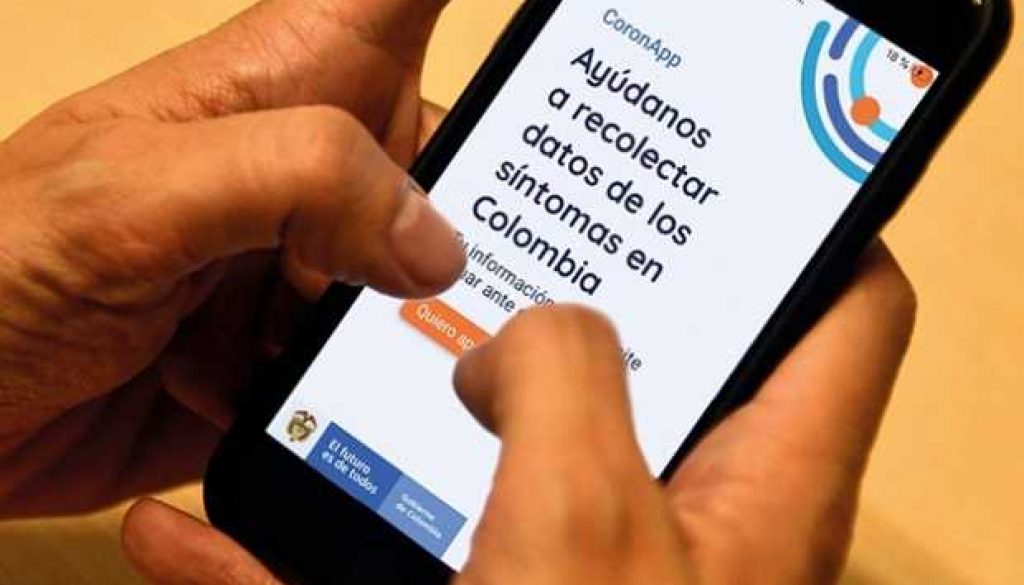Colombia: Covid-19 information app morphs into location-tracking tool
On March 8, the President of Colombia Ivan Duque and Colombia’s National Health Institute launched an app called CoronApp in response to Covid-19. It initially started out as an app for informational purposes which would see users receive alerts, information about Covid-19, and allow users to submit a self-evaluation of their health.
However, two weeks later, it emerged via the app’s updated terms and conditions that location tracking and proximity contagion tracking features were added to the app.
This followed comments by a minister that the app would eventually be used as a “mobility passport”.
As of mid-April it was reported that, of the near 50million people living in Colombia, one million had downloaded the app. It should be noted that some 20million people in Colombia do not have internet access.
In a push to seemingly increase the app’s uptake, on April 24, the Colombian government launched an incentive for mobile phone users on prepaid contacts to download it. In return for downloading the app, they would get 1GB of free internet use and 100 free voice minutes. As of May 2, 4.3million people had downloaded the app.
Privacy concerns
From the outset, some of the information that the app requested from users raised concerns with the most disconcerting question for some being whether users had participated in any mass events in the eight days before registering.
This was concerning for many, not least because it followed mass protests across Colombia in the months before the Covid-19 outbreak.
According to article 3 of the Decree 106 of 2020, the use of taxis was also conditional on download of an app and the registration of the passenger’s information.
This caused privacy concerns, particularly in Bogotá, about what information taxi services were sharing and with whom they were sharing it.
Civil society organisations also raised concerns about the lack of information regarding the purpose of the app; the lack of information about the app’s privacy or security designs; the lack of any democratic debate about it; the fact it didn’t comply with basic legal requirements of the national data protection legal framework; and the haste with which it was deployed.
Reincorporated
The government went on to remove the contact-tracing element from the app but then reincorporated it into its multi-purpose app.
Groups such as Dejusticia are monitoring the app’s developments, as massive data collection initiatives are being deployed all over the country.
Another surveillance issue that Dejusticia is monitoring is the use by Bogota police of drones, equipped with thermal cameras, to detect people with high temperatures or to identify people not complying with quarantine rules, and the use of thermal cameras detecting people’s temperatures at bus stops and workers’ temperatures at their workplaces using 5g technology.
Pic: ICT Ministry/HOMELAND/LaPatria
(Labelled for non-commercial re-use)

